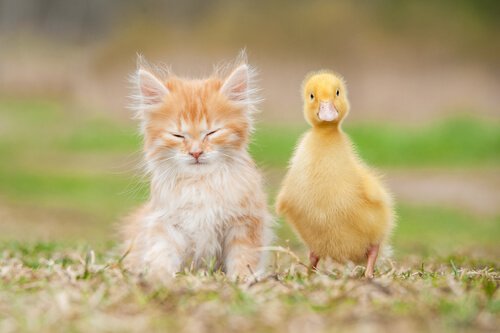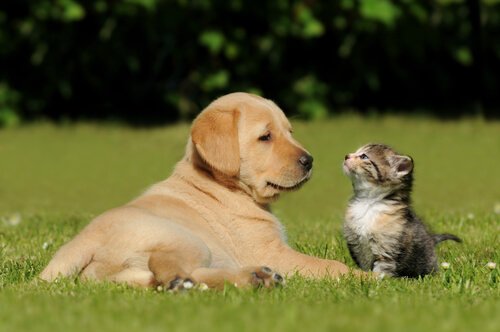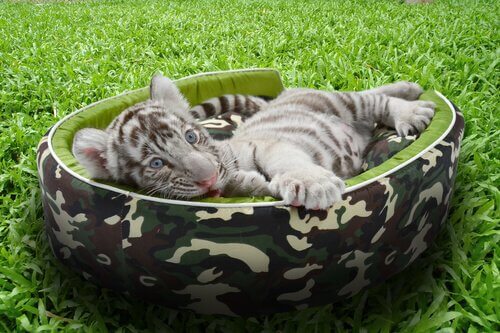Which Animals Can Be Pets and Which Can't?

Although dogs and cats are the top choices when it comes to choosing a pet, there are other options. These include fish, birds, and some reptiles and rodents. However, some people prefer exotic pets, perhaps because it’s fashionable or maybe to make a hobby out of it. So, the million-dollar question arises, which animals can be pets and which can’t?
Which animals can be pets?

Let’s start from the basics. Domestic animals – either farm animals or at home – are those that have adapted to the home environments where they live. On the other hand, wild animals would require you to recreate the conditions of their natural environment in order to survive in a house.
We also know that man has always wanted to play god. Sometimes humans choose pets capriciously, and these choices can have unpredictable consequences.
Legislation is not clear nor specific when determining which animals can be pets and which ones can’t. Because of this, in order to avoid legal loopholes or contradictions, many animal rights associations have been asking authorities to create a list of species that can be kept in homes. Whatever the case, it’s important that the exotic species isn’t in danger of extinction and is not considered invasive or potentially dangerous.
Some people prefer to have “exotic,” wild animals as pets. However, not all these animals can be considered pets.
The human habit of…
Humans often have a desire to control everything around them, which is sometimes a desire to show off and demonstrate wealth. Throughout history, the famous and powerful have often enjoyed collecting unusual pets and showing them off.
To illustrate this, a good example is Salvador Dalí. This artistic genius also had some interesting habits; some people have celebrated or even imitated them.
In the late 60s, Dalí had an anteater as a pet. A photograph of him coming out of a metro station in Paris with this poor animal became very widespread. This also caused some in French high society to imitate him. Due to this, anteaters became pets out of pure snobbery. Also, before the anteater, the artist had an ocelot name Babu as a pet.
These days, we continue to hear in the news about celebrities who choose tigers, kangaroos, boas, lions, skunks, or different species of monkeys as pets. People want to imitate them too.
Sometimes a successful movie makes an exotic creature fashionable. As a result, people want this type of animal as a pet in their homes. Unfortunately, many people don’t consider the consequences of their actions.
Exotic pets are also abandoned
What often happens is that when the animals grow then their owners don’t find them as adorable or manageable as they once thought. Irresponsible owners often abandon these innocent creatures, who had the misfortune of becoming pets.
Some of these animals face certain death. This is because they don’t develop survival skills while in captivity or because they are far from their natural environment.
However, those that manage to adapt to the new habitat and have few predators, spread easily. However, in this way they can actually become a pest, thereby endangering other species in their ecosystem.
This is the case, for example, with Florida tortoises, raccoons, or Vietnamese pigs. People have often seen these pigs near urban centers, and others have even crossed them with boars.
Why some animals can’t be pets

So, how can we know which animals can be pets? Basically, any animal is a wild animal should never be chosen as a pet. There are several reasons for this:
- Raising them in an environment different from their own is cruel.
- Purchasing these animals contributes to the poaching and smuggling of endangered species.
- They transmit diseases: rabies, salmonellosis, psittacosis, etc.
- These animals may end up attacking a family member, especially when they reach adulthood.
- They need specific foods that, due to ignorance or difficulty in obtaining the food, you can’t provide. This leads to nutritional deficiencies that often have serious consequences.
- You deprive them of being able to coexist with their peers, which is essential for them to learn and survive.
- Being away from their natural environment can cause depression and sickness. It can also cause death without apparent cause.
In addition, when there are so many cats and dogs without a good home, why would you need to remove an animal from its natural habitat?